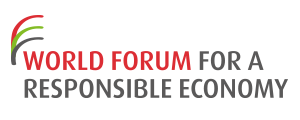A Royal College of Art (London)-backed start-up, Ananas Anam Ltd, established in 2013, has developed Piñatex®, a natural plant-based and versatile material from a sustainable source. Piñatex follows a strong social and ecological agenda and can be mass-produced, making it a cost-effective textile and alternative to leather.
Piñatex is patent-protected and can be used in fashion, footwear, accessories, upholstery and automotive industries. Similar to Gore-Tex®, Piñatex is a branded material with an identifiable logotype.
Ananas Anam has integrated the circular economy concept since its foundation, by giving economic value to a waste. 13 m tons of leaves waste is generated every year in the Philippines by pineapple plantation and about 54 m tons worldwide. In Philippines, this waste was partially used as mulch, back into the ground, and there is not an estimation of the impact that it may cause. Ananas-Anam uses pineapple leaf fibre to produce Piñatex (a non-woven material). The pineapple leaf fibres that are used on the production of Piñatex represents 2% of the waste. The discarded part can be used as fertiliser and it is easier to degrade as compost under specific conditions. So, in this way economic value is adding to a waste.
Piñatex is an innovative patented ethically produced new material in the same commercial scope as leather and its PU (from fossil fuels) PVC derived alternatives. Provide a high-performance material able to compete economically in the market can help to reduce the use of non-degradable plastics that are one big problem for the environment nowadays.



